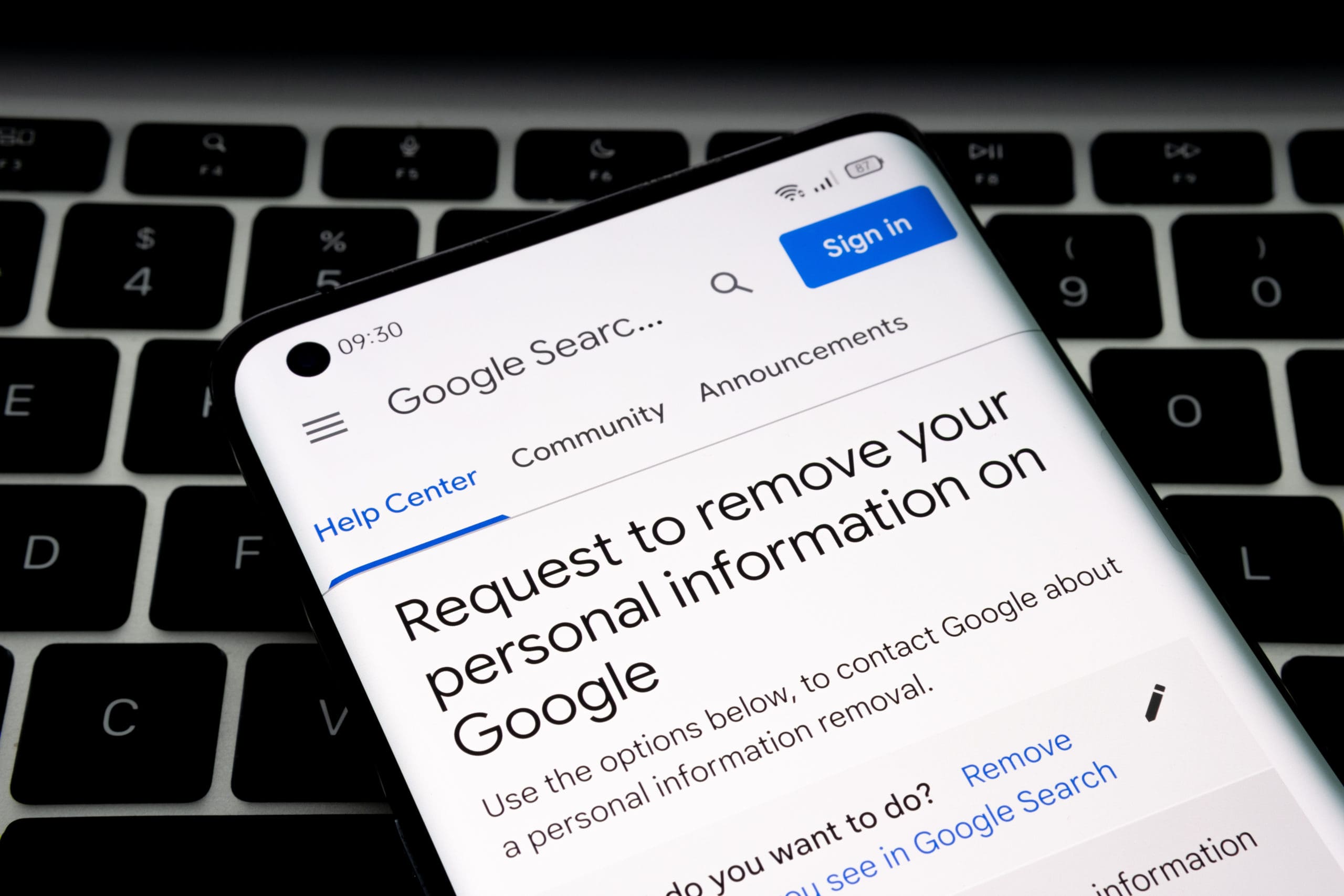How to Remove Yourself from a Google Search Results – Guide

Removing yourself from Google search results can be crucial in managing your online presence and protecting your privacy. Whether you’re a victim of online harassment, want to remove outdated information, or simply desire more control over your digital footprint, methods are available to help you achieve this.
Who Can Benefit from Removing Themselves from Google Search Results?
In today’s digital age, personal privacy is crucial. Removing themselves from Google search results can benefit individuals who want to protect their personal information, manage their online reputation, or maintain privacy. By doing so, users can prevent unauthorized access to sensitive data and minimize the risk of online harassment. Moreover, removing unwanted search results allows individuals to distance themselves from a negative past and reshape their online image more positively.
The advantages of removing oneself from search results extend beyond personal benefits. Professionals in fields like medicine, law, and public figures, where confidentiality is paramount, can greatly safeguard their professional reputation by disappearing from search results. Similarly, individuals undergoing a career transition or job search can ensure that outdated or irrelevant information doesn’t hinder their prospects. By removing such content from search results, they can present their company with a more accurate and relevant professional image.
Taking control of one’s online presence is key to personal brand development and cultivating a professional online identity. Therefore, by removing themselves and personal information from Google and search results, individuals can enhance their online presence, protect their privacy, and benefit their personal and professional lives.
Why Would Someone Want to Remove Themselves from Google Search Results?
When removing themselves from Google search results, individuals may have various reasons for doing so. Privacy concerns are a significant factor. People might want to keep personal information, such as contact details or private images, confidential and out of the public eye. Individuals may want to remove damaging content that could impact their personal or professional reputation. Another reason could be to maintain control over their online presence and identity. By removing themselves from Google search results, individuals can have a more selective and curated online presence. Some individuals might want to remove themselves from search engines’ results to prevent unwanted attention or harassment. The internet can make finding and contacting individuals easy; some may wish to minimize this exposure. Ultimately, removing oneself from Google search results is personal, driven by factors like privacy, reputation management, maintaining control, and minimizing unwanted attention.
Methods to Remove Yourself from Google Search Results
Contact the Website Owner
To successfully remove yourself from Google search results, following these steps for contacting the website owner is crucial. Firstly, locate their full address and contact information, typically found on their “Contact Us” or “About” page, ensuring you have accurate details for effective communication. Secondly, compose a polite and concise removal request, clearly stating your desire to have your information removed from their site and specifying the URLs or pages in question. If direct contact information is unavailable, utilize the “Report a Problem” option on some websites to explain your request thoroughly. Always keep a record of your communication. Lastly, follow up appropriately, giving the website owner a reasonable timeframe to respond and fulfill your request. If your request is denied or you receive no response, be prepared to explore alternative methods for removal from Google search results. It’s important to remember that while contacting the website owner is valuable, it may not guarantee immediate success. Still, their cooperation is essential as they can remove your information from their site.
Submit a Removal Request to Google
- Visit Google’s Search Console website.
- Sign in using your Google account.
- Choose the website you want to submit a removal request for.
- Click on the “Removals” option in the left-hand menu.
- Select “New Request”.
- Enter the URL for the page you want to remove from search results.
- Choose the reason for your removal request, such as explicit or intimate personal images.
- Provide any additional information or comments related to your request.
- Click on “Submit Request” to send your removal request to Google.
Remember, submitting a removal request to Google does not guarantee that the requested page will be removed from search results. Google will review the request and decide based on their policies and guidelines.
Modify Your Social Media Privacy Settings
When it comes to enhancing your privacy and managing unwanted search results on social media, there are several crucial steps to consider. Firstly, reviewing and adjusting the privacy settings on each social media platform you use, including Facebook, Twitter, Instagram, and LinkedIn, is essential. Secondly, take control of your profile’s visibility by setting it to private or limiting access to approved friends or connections. Thirdly, utilize the tools provided by these platforms to restrict who can search for or find your profile. Additionally, exercise caution when sharing information to avoid disclosing sensitive details. Regularly clean up your profiles by removing outdated or unwanted information. To further safeguard your identity, consider using different usernames or aliases. Strengthen your security by enabling two-factor authentication and using strong, unique passwords. Lastly, familiarize yourself with reporting and blocking features on each platform if you encounter unwanted or harmful content. Following these steps, you can effectively modify your social media privacy settings and exert greater control over your online presence.
Tips and Best Practices to Successfully Remove Yourself from Google Search Results
Knowing how to remove yourself from Google search results is essential in a world where our digital footprint plays a crucial role. This section uncovers valuable tips and best practices focused on successfully removing yourself from the omnipresent search engine. From practicing patience to regular monitoring Google searches and follow-ups, we’ll explore methods that empower you to take control of your online presence. And if the situation demands it, we’ll discuss how seeking professional guidance can strengthen your efforts. Let’s navigate this dynamic landscape together.
Be Patient
Patience is crucial in removing yourself from Google search results, as it can take time and involves inherent risks. Google employs eligibility criteria when reviewing removal requests, underscoring the need to meet these requirements and wait patiently for the removal to occur. Regular monitoring of searches and follow-up with Google are vital to stay informed and take necessary actions. Seeking guidance from professionals, like reputation management or legal experts, can be advantageous when navigating potential challenges. In essence, persistence and proactive measures are essential in safeguarding your online identity during this removal process.
Monitor and Follow Up Regularly
To effectively monitor and follow up regularly, it is crucial to remain vigilant and proactive. Persistently strive to remove unwanted content and regularly review for any new information that may have emerged. When contacting website owners or Google, maintain a professional and respectful approach. It is important to exercise patience as the process may be time-consuming and entail significant risks. If required, seek guidance from professionals such as reputation management experts or legal help centers to navigate the complexities of removing yourself from the sites and Google search results.
Consult with Professionals if Needed
Consulting with professionals is vital when removing yourself from Google search results to protect your reputation and personal privacy. Reputation management experts can provide valuable insights and strategies to mitigate potential harm from negative search results. They can also assist in identity theft, copyright infringement, or other legal concerns, guiding you through necessary steps and legal actions. Legal help centers specializing in online reputation management offer valuable resources to identify the best course of action for your situation, increasing the likelihood of successfully eliminating unwanted search results. Remember, this process can be complex and requires patience and ongoing monitoring, making professional assistance invaluable in achieving your desired online image.





